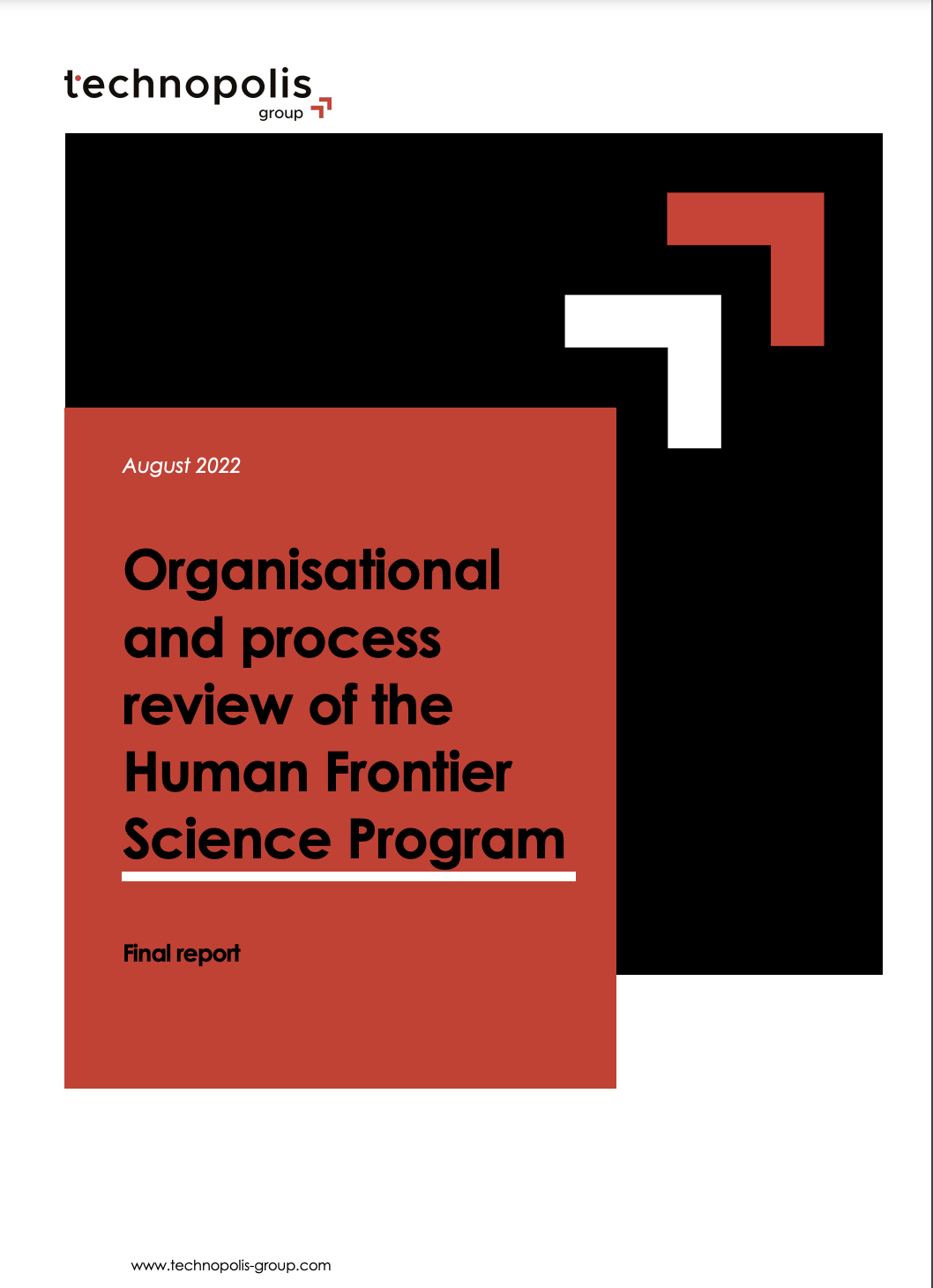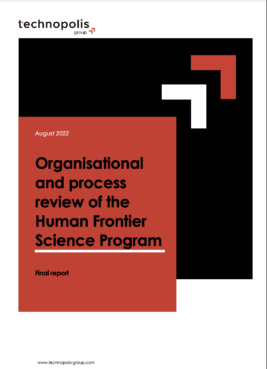Organisational and process review of the Human Frontier Science Program
Publication date: 4 april 2023 | Report language: EN
The HFSP is an international cooperation supported by the world’s leading scientific countries promoting fundamental research in the life sciences with special emphasis on novel and interdisciplinary research, international and, in particular, intercontinental collaboration, and support for young investigators. Through its different funding schemes, it supports frontier, potentially transformative ‘out-of-the-box’ proposals and encourages discovery research projects that may contain risk. Successful projects challenge existing paradigms by using novel approaches and techniques; they address important problems and barriers to progress in the field. Since its beginning in 1989, 28 HFSP awardees have gone on to win the Nobel Prize.
This report presents the findings of the Organisational and Process Review of the Human Frontier Science Program (HFSP). Our headline finding is that the HFSP is in good health. It is broadly doing the right things and doing them well. Our headline recommendation is that there is a clear case for the HFSP to grow, both in terms of its overall budget and its human resources. However, in light of the importance of maintaining its unique culture (see below), such growth needs to be gradual rather than sudden.
Most importantly, the HFSP application assessment processes largely succeed in identifying the most innovative, ‘frontier’ research ideas and recommend them for funding. The HFSP has succeeded in this respect through creating and maintaining a cultural understanding of what the HFSP is trying to achieve. This ‘HFSP-culture’ ensures that the HFSP’s decision-making is genuinely different from that of mainstream research funding processes, even though the HFSP’s processes themselves are very similar to those of many national funders.
Relying on culture rather than process structure to foster a special ‘type’ of research also allows for a degree of flexibility with the various HFSP aims (i.e. to fund ‘frontier’ research, novel interdisciplinary perspectives, novel collaborations and international exchange). This helps to avoid these different aims coming excessively into conflict with each other, as they might do if they were overly prescribed and formalised.
Our findings lead us to a small set of concrete recommendations and a further set of more general possible avenues for change. Most notably, we put forward a range of reforms to the Letter of Intent (LoI) stage, we suggest increasing gender and geographical diversity among reviewers and committee members, and encourage more outreach and networking events, especially on a small scale to target new regions and collaboration with new fields of science.





